Crime Book Festival Journal: Iceland Noir 2018
Where: Reykjavik, Iceland
When: November 16 - 18
This past weekend, I had the incredible opportunity to travel to Reykjavik, Iceland for Iceland Noir 2018 - a crime fiction festival that takes place in Iceland every other year. And what an incredible trip it was! In this blog post, I’ll be sharing a day-by-day recap of my time in Iceland, including panel notes, book recommendations, lots of photos, and a whole lot more.
I'm consistently blown away by just how quickly these crime festivals can bring people together. I was in Reykjavik for a total of 6 days, but in that (brief) time, I was so fortunate to meet some of the most thoughtful, genuine people I've probably ever met - and to reconnect with longtime friends, too! I came back to New York more inspired and energized, and that's entirely thanks to the folks who made this year's Iceland Noir so memorable. And, bonus, my reading list got a whole lot longer, too. If you haven't yet gone to Iceland Noir, it's absolutely worth adding to your travel plans in 2020!
A huge thanks to the entire Iceland Noir team for organizing such a fantastic festival, and for allowing me to be a part of it. I am so appreciative of this opportunity, and am already counting down to the next Iceland Noir festival!
A little disclaimer: I did my very best to accurately take notes on the author appearances and interviews that I listened to at this festival. Any errors are my own.
This post contains Amazon Affiliate links. Crime by the Book is a participant in the Amazon Services LLC Associates Program, an affiliate advertising program designed to provide a means for sites to earn advertising fees by advertising and linking to Amazon.com. This in no way impacts my opinions on the books mentioned in this post.
Books I Added to my TBR from Iceland Noir 2018:
The books that most caught my eye at this year’s Iceland Noir!
A House of Ghosts by W.C. Ryan
If you love supernatural suspense, William Ryan’s A HOUSE OF GHOSTS sounds like a must-read. This chilling suspense story sets a murder mystery in a haunted house. Learn more here.
When We Were Lost by Kevin Wignall
YA readers, this one’s for you! Kevin Wignall’s WHEN WE WERE LOST follows a group of teenagers who survive a plane crash. Bestselling crime writer James Patterson has written the foreword to this book! Available Spring 2019. Learn more here.
We Can See You by Simon Kernick
This one looks right up my alley. Sarah Pinborough calls WE CAN SEE YOU “an emotionally punchy domestic noir blended with the pace and action of a high-octane thriller” - sign me up! Available in just a few days in e-book, and in early 2019 in physical copy. Learn more here.
The Ice Star by Christoffer Petersen
Christoffer Petersen’s Nordic Noir series is set in Greenland - which sounds like an incredible backdrop for a Nordic thriller! This book came highly recommended by one of the Iceland Noir panel moderators whose taste in books I absolutely love, so I’m excited to check it out. Learn more here.
Skin Deep by Liz Nugent
I absolutely love Liz Nugent’s books, but I have yet to read her third psychological suspense novel, SKIN DEEP. Meeting Liz this weekend - and hearing her on panels! - reminded me that I need to read this one ASAP. SKIN DEEP hasn’t been published in the US yet, but the international edition is available on Amazon! Learn more here.
Bone Dust White by Karin Salvalaggio
BONE DUST WHITE is the first book in Karin Salvalaggio’s Macy Greeley series. I absolutely loved getting to know Karin over the course of the weekend, and can’t wait to check out her series! Learn more here.
Icelandic Crime Writers to Watch:
These authors aren't translated into English yet, but I'm hoping they will be in the near future! Remember their names, and keep an eye out for English translations of their work down the road.
Oskar Gudmundsson
Oskar is the author of two crime novels: HILMA and BLOOD ANGEL. His debut novel, HILMA, was released in 2015 to fantastic reviews, and quickly rose to the top of the Icelandic bestseller charts. Oskar is one of the organizers of Iceland Noir, and I’ve been fortunate enough to meet him a couple times now—and every time I meet him and learn more about his books, I get even more excited for them to be released in English! You can keep up with Oskar on his website.
Eva Björg Ægisdóttir
Eva is the 2018 recipient of The Blackbird, a prize awarded to debut Icelandic crime writers. The Blackbird Award is sponsored by two CBTB favorites, Yrsa Sigurdardottir and Ragnar Jonasson, in conjunction with the D H H Literary Agency. Eva’s debut novel, Marrið í stiganum, follows a police officer who has to return to her hometown to investigate a murder. I listened to Eva speak on the “New Icelandic Noir” panel, and was thoroughly impressed by her discussion of her novel!
Iceland Noir 2018 Crime Festival Journal
Reykjavik, Iceland
Day 1: Wednesday, November 14
I left New York on Tuesday night, and arrived in Iceland at 5 AM on Wednesday morning. (Huge thanks to WOW Air for the nice and easy flight!) After catching the bus from Keflavik into Reykjavik, I had a little bit of a wait until my hotel room was ready, so I made the most of it by exploring the area near my hotel! My favorite thing to do when I'm traveling is just to walk around and see what I discover, and I had so much fun exploring the city center and watching the sun rise. After grabbing some food (and lots of coffee!), my hotel room was ready. I wish I could say I managed to stay awake the whole day... but I definitely took a nice nap that afternoon! Then it was time for dinner, and I was so excited to be invited over to Lilja Sigurdardottir's beautiful home for dinner and some Iceland Noir prep. We ate, stuffed goody bags for the festival, and I even got a signed ARC of Ragnar Jonasson's THE ISLAND in the process! It was a wonderful first day in Iceland.
Day 2: Thursday, November 15
I woke up on Thursday feeling totally refreshed and ready to do some more exploring! One of my favorite things about Reykjavik is just how many fantastic bookstores there are in the city. Whether you speak English or Icelandic, there are so many amazing options for you. Books are very expensive in Iceland, so I mostly did window-shopping - but I definitely spotted a few books that I added to my to-buy list for the future! On Thursday, I visited a few of my favorite bookstores in the city, including:
Mal Og Menning
The best of the best. This two-story bookstore is basically a dream come true: along with a first floor primarily dedicated to books in Icelandic, it has a second floor with tons of English language books - and a cafe overlooking the first floor, too! I had a coffee and did a little reading of Yrsa Sigurdardottir's THE RECKONING while there.
Ida Zimsen
This bookstore is just totally charming. It has a much smaller book selection, but it's the perfect place to do some browsing and find a souvenir or two as well! Bonus: it has a cozy coffee shop and lots of seating.
After my bookstore visits, I stopped for some food (I opted for an Indian restaurant, and it was so good). Then I got checked in to my second hotel of the trip and relaxed for a little bit before the very first event of Iceland Noir!
On Thursday evening, there was a unique panel of New Icelandic Noir held at a local brewery, Bryggjan Brugghus. This panel was particularly exciting to me, because it highlighted Icelandic crime writers who have not yet been translated into English! I'm always looking for new Nordic authors to read, so this panel felt like getting a sneak peek at the future of the genre. This panel was moderated by Quentin Bates, and included Eva Björg Ægisdóttir, Kristján Atli Ragnarsson, Róbert Marvin, and Simon Cox. I was particularly intrigued by the way Eva spoke about her work - I’ve got my fingers crossed her books will be translated into English soon!
After this panel, it was time for me to go back to my hotel and get ready for the first full day of Iceland Noir.
Day 3: Friday, November 16
Iceland Noir Day 1! Friday was the first full day of the festival, and it was jam-packed with panels and events from 8:30 AM to the late hours of the night. This year's festival was held at IÐNÓ, a cultural center right in the heart of the city. It was the perfect venue for the festival - close to restaurants, coffee shops, bars, and more! If you’ve ever been to Reykjavik (or just seen photos of the city center!), IÐNÓ sits overlooking the pond in the center of the town, which is just an absolutely beautiful location.
My morning on Friday was spent half listening to panels, and half getting ready for my own panel! I was so, so excited to moderate my first-ever panel at Iceland Noir this year, and I truly got so lucky with the lineup of authors I got to interview. My panel included (from left to right in the below photo!), Kevin Wignall, Sheena Kamal, Simon Kernick, and Alexandra Sokoloff - a dream list. I had so much fun chatting with this group about their books, their writing process, their protagonists, and a whole lot more.
Because I was the one conducting the interview, I couldn’t also take notes on the authors’ responses to my questions (obviously!), but I will instead link below a few of the books discussed during this conversation so you can check them out for yourselves! It was such a dream come true to get to moderate a panel with this wonderful group of people, and I’m so thankful to these authors for joining me for this event.
Kevin Wignall: TO DIE IN VIENNA
Read this book before it becomes a movie! TO DIE IN VIENNA has been optioned for film, and Jake Gyllenhaal is slated to star in the movie adaptation. Learn more here.
Sheena Kamal: THE LOST ONES
Sheena’s critically-acclaimed, award-winning debut novel launched her Nora Watts series! This series is best read in order. Learn more here.
Simon Kernick: THE BUSINESS OF DYING
Simon’s debut novel, THE BUSINESS OF DYING, introduced readers to Dennis Milne - a cop who moonlights as a hit-man (!). Learn more here.
Alexandra Sokoloff: HUNTRESS MOON
The first book in Alexandra’s dark FBI thriller series! This series must be read in order, so start with HUNTRESS MOON. Learn more here.
After my panel wrapped up, I stayed at IÐNÓ for the afternoon and listened to a number of fascinating panels and interviews on the Friday program!
Panel: “The Puffin Panel”
Featuring: Jacques Filippi (Moderator), Iain Reid, Jónína Leósdóttir, Liz Nugent, Roxanne Bouchard
Q: In your writing, do you want to set a definite role for your characters? Do you want one to be definitely a bad guy, one to be definitely a good guy, etc.?
Liz: Liz tries to keep her fiction tied to and reflective of real life. In real life, the bad guy doesn’t always get caught, and people don’t always find out the truth - those realities are always in the back of her mind when she’s writing. In her first two novels (UNRAVELING OLIVER and LYING IN WAIT) the “bad guy” doesn’t necessarily get his comeuppance, but he does suffer in a different way - though not as badly as they probably deserve. Liz thinks that people read crime fiction because they’re looking for justice, and they can find that in crime novels, but not always in real life.
Q: Can you explain a bit about your interest in seeing how ordinary people can become these bad characters?
Liz: There are very bad people living in plain sight - people who have really dark, bad thoughts. They don’t necessarily act on them - but they have a really dark side to their nature. Liz tries to explore that in her novels as much as she can. Particularly in UNRAVELING OLIVER, which starts with a man beating his wife into a coma. But Liz then uses the novel to go back in time and explore the events leading up to that moment. She doesn’t condone what Oliver has done, but she wants readers to understand why everything was at stake for him, and why he came to do the terrible things that he did.
“I think people read crime fiction partly because they are looking for a sense of justice - and they can get that from most crime novels, but not always from life.” —Liz Nugent
Q: What’s the most difficult part of writing novels?
Ian: The beginning of the process. Novel writing gets more and more enjoyable for Ian as it goes, but getting through the beginning is the hardest. But once he gets going, he never wants to stop - as he put it, he could probably be happy revising one book for the rest of his life!
Liz: Liz finds writing to be really hard work! As she described it, there’s a fear that when you open up your laptop to write, nothing will come. She’s full of doubt and concern every day that when she opens up her laptop, she won’t have anything to say. She’s now on her fourth book, and she still feels like she hasn’t yet found her ideal routine! Once she gets into the zone with her writing, then she can find it enjoyable - but that only happens very rarely for her. The first draft of every novel terrifies her, but once she gets that first round of edits back from her editor, then she really begins to enjoy it. Editing is her favorite part of the process.
Roxanne: Roxanne writes for 8-12 hours a day while writing her first draft! She has a very all-consuming writing process when she’s working on the first draft. But after that first draft is done, she takes things easier - then she goes back and adds in little details to enrich the story.
Q: Do your characters ever do anything that surprises you?
Ian: Yes, definitely. That’s why he prefers not to know much about the story before he starts. He gets to know the story and the characters as he goes. It’s a process filled with surprises - sometimes his characters scare him, sometimes they make him laugh, and that’s exactly what he’s looking for as he writes.
Liz: Often she will look at a character and know what the next logical step is for them to take, but then she will deliberately make them do something else! Because when characters make bad decisions, that’s when you get really interesting plot.
///
Spotlight Interview: Shari Lapena in Conversation with Iceland’s First Lady, Eliza Reid
Highlights from the Interview:
Shari used to write literary novels!
When she was writing literary novels, she didn’t plot her books at all. But she realized that she couldn’t be that way if she wanted to write a thriller. She finds writing thrillers harder than writing literary fiction, because of the demands of plot that go into making a high-quality thriller.
While writing her thrillers, Shari doesn’t know which character will wind up being the culprit. She juggles a number of threads through each of her thrillers, and it isn’t until she’s about ¾ of the way through writing her first draft that she figures out “whodunnit.” While writing, she makes it so it’s possible that any number of characters could be the culprit, and then once she’s figured out the ultimate solution, she uses those other characters as red herrings.
She wrote The Couple Next Door - her debut thriller - in secret!
Writing her first thriller was a totally different experience from writing her subsequent thrillers. When you’re writing a first book, you’re doing it just for you, and the process is very fun and exciting because there’s no external pressure on it. But then with the second book, there’s more pressure. You have a hard deadline, and if your first book was successful, there are high expectations for your second book, too.
Shari comes from a background of reading a lot of crime fiction. She started out reading Nancy Drew, and she always wanted to be Carolyn Keene! Of course, as it turned out, “Carolyn Keene” wasn’t just one person - but her love of the Nancy Drew books got her interested in mystery writing at a young age. She’s also very inspired by Agatha Christie, and is a huge fan of the current domestic thrillers.
A fascinating insight: voice and plot are not the same thing. For example: the plot of Shari’s latest novel (An Unwanted Guest) was inspired by Agatha Christie’s And Then There Were None. However, Shari’s own voice is so different from Agatha’s, and that difference makes the two books totally distinct. The reading experiences are very different. In that way, staying true to your own voice as an author is crucial.
///
Following a full day of panels, Iceland Noir attendees got to watch Eliza Reid present the Icepick Award! The Icepick Award is given out annually for the best novel in Icelandic translation. The 2018 Icepick Award went to Jo Nesbo and his Icelandic translator for THE SON!
After the Icepick Award, I headed back to my hotel to unwind a little bit and get ready for drinks and dinner with a few crime writers from the festival! It was such a fun time. While I always learn so much at the official festival events, I must admit that my favorite part of crime festivals are always these spur of the moment plans—they’re the best way to get to know the people behind the books we all love so much.
Day 4: Saturday, November 17
Saturday was another fantastic day filled with panels and special events! I spent the whole day at the festival venue watching panels and hanging out with other festival attendees, and enjoyed every minute of the day. I had a huge fangirl moment Saturday morning when I (finally!) got a photo with one of my favorite authors, Liz Nugent! Despite having loved Liz’s books for a few years now, I had never met her in person until Iceland Noir, and I was so excited to have the chance to chat with her. Spoiler alert: she’s witty, smart, and so, so kind.
After a full day of panels, Saturday evening had a number of special events, including a movie screening and a performance from the Fun Lovin’ Crime Writers! But more on that later—first things first, a few highlights from a busy day!
What is Storytel?
One of the sponsors of Iceland Noir, Storytel is an audiobook company that is helping to grow the audiobook market in Iceland. Think of it like Netflix, but for audiobooks. Iceland Noir festival attendees learned a bit about the company on a panel all about audiobooks! I was interested to learn that audiobooks are a very young market in Iceland. As you guys may know, I’m actually very new to audiobooks myself - I’ve literally only listened to one audiobook ever - so this conversation was actually a really interesting way for me to get a feel for this storytelling format! The representative from Storytel talked with Lilja Sigurðardóttir, Ed James, Karen Sullivan, and Yrsa Sigurðardóttir about what goes into making an audiobook, what the most listened-to audiobook categories are (spoiler: crime fiction and thrillers do really well!), and a whole lot more. Storytel also had little displays set up in the Iceland Noir venue where attendees could sample audiobooks and explore their catalog! This was a really cool learning experience for me - as someone who knows literally nothing about the audiobook market, it was fascinating to get this inside glimpse.
///
Panel: The Agatha Panel
Featuring: Katrín Jakobsdóttir (Moderator), Martin Edwards, Ragnar Jónasson, Ármann Jakobsson
This panel was an absolute highlight of the conference for me. Moderated by Iceland’s Prime Minister, who also happens to be an expert in crime fiction, this 45-minute conversation on all things Agatha Christie was completely fascinating. Copious notes from the panel ahead…
Katrín to Ragnar: You’ve been a passionate translator of the Agatha Christie novels. Is there still interest in her works from the Icelandic public?
Ragnar: Unfortunately her readership in Icelandic seems to be on the decline - there hasn’t been a new translation of Agatha Christie in Icelandic in 10 years. But perhaps part of this is because people are reading her work more and more in English. Overall, interest in her work is still very strong, but it’s not as strong in Icelandic translation as it used to be. There is absolutely a newfound admiration and respect for her work, though, much more so than there was 20 or 30 years ago.
Katrín to Ármann: You have written a number of articles on Agatha Christie to address criticisms of her work, that her work was too cozy or was out of touch. Could you present a few of those arguments to us?
Ármann: Ármann presented two arguments to audience members. 1) People tend to like to find prejudices in Agatha Christie novels, but in doing so they ignore the fact that she was actually writing about prejudice in a very conscious way. Both of her detectives are the kinds of people whom English people had strong prejudices against at the time she was writing; Poirot was a foreigner, and Miss Marple was an old lady. In Christie’s writing, she has these characters use their “otherness” to their advantage. Poirot uses his foreigner status to lull people into thinking of him only one way, and Miss Marple pretends to be flustered and mixed up to give people a false sense of security. Through these characters, Christie was in fact addressing some of the prejudices of her time. 2) The timeless way her novels teach readers not to simply believe everything they are told. Throughout her novels, she employs sly plotting, misdirection, and endless illusions - and these are qualities that can teach any reader to look beyond the information we’re given and see what’s really going on.
Katrín: Katrín shared that she still reads Agatha Christie novels for therapeutic purposes! Modern crime fiction is often very loaded with forensics and technological solutions, but when you read an Agatha Christie novel, you are reading a mental puzzle. Her readership might be declining in Icelandic, but you can still find her novels in any bookstore. That’s not true of other authors of Golden Age detective fiction. Why has her work survived so well?
Martin: Christie really has maintained a worldwide popularity, with readers who come from entirely different worlds - different times, places, countries, and more. There’s something that Christie gets about human nature that resonates with all different audiences. She deals with essentials, so that people from very different cultures can identify with some of the elements of an Agatha Christie story written years and years ago. A key to her success lies in the fact that she is writing about outsiders who are constantly underestimated by the authorities!
Ármann: She’s a great judge of character! There’s also a lot of low key comedy in her books that’s really helpful for the reader.
Ragnar: All of her contemporaries were writing magnificent puzzles. But in Agatha Christie’s books, what stands out is that the solutions to her puzzles are so simple, but so brilliant. They’re completely surprising when you’re reading them, but they are so simple to explain once you’ve seen the reveal. That’s part of her brilliance and part of the lasting appeal of her work.
Katrín to the group: Adaptations. What’s your view on them?
Martin: All in favor of adaptations, but they key question always is: what’s the point? If the point is simply to get a big audience, that’s not enough. There has to be something about it that adds to the original.
Ragnar: Grew up watching the Poirot series with Hugh Fraser, and loved it! He typically enjoys a Christie adaptation. There are a few occasions where has been disappointed by adaptations - particularly a few recent ones. But in general he really enjoys them, and considers them enjoyable experiences in their own right.
Katrín to the group: Has Agatha Christie influenced your writing? And do you see her writing in modern crime fiction?
Martin: Yes. His original series was a blend of gritty, modern crime and an Agatha Christie-style plot.
Ármann: He is both directly and indirectly influenced by her. Along with being influenced directly by her work, he’s also influenced by writers who have been influenced by her!
Ragnar: Christie is a great influence on so many crime writers, whether they acknowledge it or not. For Ragnar, there are two key points he tries to pick up from her. #1 is the setting: in Christie novels, the setting often becomes a character unto itself. That’s such a huge part of the charm of her books. #2 is the clever plot with a twist at the end, a reveal that turns the whole story around when you finally see it from a different angle.
Audience Question: What’s your favorite Agatha Christie novel?
Katrín: The Murder of Roger Ackroyd
Ármann: Taken at the Flood
Martin: And Then There Were None
Ragnar: The Murder on the Links
///
After panels wrapped up for the day, it was time for a special event I was very highly anticipating: a screening of the film I Remember You, based on the novel of the same name by CBTB favorite Yrsa Sigurðardóttir! Before the movie got started, Yrsa and Þorvaldur Davíð (Thor Kristjansson), one of the actors from the film, sat down for a brief conversation with Jacky Collins about the making of the movie. As a huge fan of both the book and the movie, this was such a unique and memorable experience!
Last but certainly not least, following the screening, we headed back to the festival venue for a performance by the Fun Lovin’ Crime Writers, a band made up of (you guessed it!) crime writers! At the end of their performance, the Iceland Noir organizers even joined them on stage for their final song. Such a fun way to end the conference.
Saturday marked the end of the official Iceland Noir events, but the fun was just beginning…
Day 5: Sunday, November 18
On Sunday morning, I packed up and headed out of Reykjavik for what quickly became my most favorite part of this whole Iceland trip. A number of crime writers from the festival (and yours truly!) were invited to an offshoot trip: a night at the gorgeous Hótel Búðir. Hótel Búðir is a beautiful, remote hotel that sits atop a lava field on Iceland’s Snaefellesness peninsula… if you’re thinking it sounds like the perfect setting for a murder mystery, I totally agree. I’ve been highly anticipating this part of the trip for months and months now, and the reality of the experience at Hótel Búðir was even better than I expected. But! Before I get to that part of the trip, it’s worth recapping what we did along our journey to the hotel.
Our little road trip out to the hotel turned out to be such unexpected fun. A caravan of cars carrying crime writers headed out of Reykjavik and into Iceland, and along the way we stopped to explore lava fields, a shark museum (where a number of brave souls sampled fermented shark!), and much, much more.
First up: exploring the lava fields with Shari Lapena, Yrsa Sigurdardottir, Lilja Sigurdardottir, Oskar Gudmundsson, & more!
Next up: we stopped at a shark museum (!) and learned how fermented shark is made. I didn’t try the fermented shark myself, but a bunch of the crime writers I was traveling with did! We also spent some time walking around outside the museum - it was absolutely beautiful.
At long last, we arrived at Hótel Búðir, and it was absolutely breathtaking. Driving through the mountains at dusk and spotting the light from the hotel in the distance truly felt like something out of a movie—or out of a classic mystery novel. It was stunning. We checked into the hotel and settled in for an evening of drinks, dinner, ghost story-telling, visiting the gift shop of the hotel’s local witch (!), and a whole lot more. Basically, it was the perfect evening.
Day 6: Monday, November 19
I woke up after one of the best sleeps I’ve had in ages in my cozy room in the beautiful Hótel Búðir. It was (naturally) still dark out, but I got up right away - I had exploring to do!
Now, if you follow CBTB on Instagram, you’ll probably have spotted a ton of photos in my stories of a small black church in Iceland—so here’s a little backstory! When I first heard about this Hótel Búðir outing, I (naturally) did some Googling, and discovered that near the hotel sits an old, very beautiful little church, known as the Búðir Black Church. I fell completely in love with this little building, and could hardly wait to get my chance to visit it. When we first arrived at the hotel, it was too dark out to get a good look at it… but, naturally, the first thing on my agenda Monday morning was to finally pay it a visit. Along with a couple of my new crime writing friends, I set out as the sun was rising to finally see it in real life—and it completely surpassed my expectations. This little building surrounded by such vast, expansive land and sky is, in all honesty, one of my favorite things I’ve ever seen.
We walked all along the coast of the peninsula that morning, and it kind of felt like being at the end of the world: nothing but water and mountains as far as the eye could see. I may live in a big city, but it’s this kind of landscape that really makes me happiest. This was a morning of exploring I won’t soon forget!
On our way back to Reykjavik that afternoon, we also stopped for some incredible sightseeing along our drive. Check out this rock formation - doesn’t it look like a Viking ship?
Very sadly, that night was my last in Reykjavik before heading back to New York - but I made the most of it! I checked into my last hotel of the trip - the very cool Apartment K in the city center - and then went out to dinner with a few of my favorite people from the conference. A couple of us finished off the night with a walk up to the iconic Hallgrímskirkja, and on our way down the hill towards our hotels, we heard some live music coming from a pub… so, naturally, we had to stop in! We had one last toast to Iceland Noir (a toast of Brennivin, which is aptly nicknamed “Black Death”), and then it was time for me to call it a night.
Day 7: Tuesday, November 20
I had one last walk through Reykjavik before heading out on Tuesday morning, and soaked up all the beauty of this city. Even (or maybe even especially) on a cloudy day, Reykjavik really is so charming.
I always have a hard time leaving these crime conferences, but saying goodbye to Iceland Noir 2018 was particularly difficult. The beauty of these conferences isn’t just that you learn about new books and authors (although you certainly do lots of that, too!) - it’s also that you get to connect with so many like-minded people from all around the world. I feel so fortunate to have befriended a number of absolutely wonderful writers and readers at this conference, and I’m now just hoping I can find myself in the same place as these folks again in the near future! I’m already counting down to Iceland Noir 2020, and hope to see lots of you there.
Many, many thanks to everyone who made my Iceland Noir experience so exceptional. Iceland, I miss you already! xx A




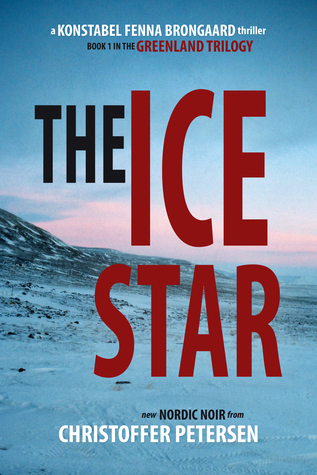






















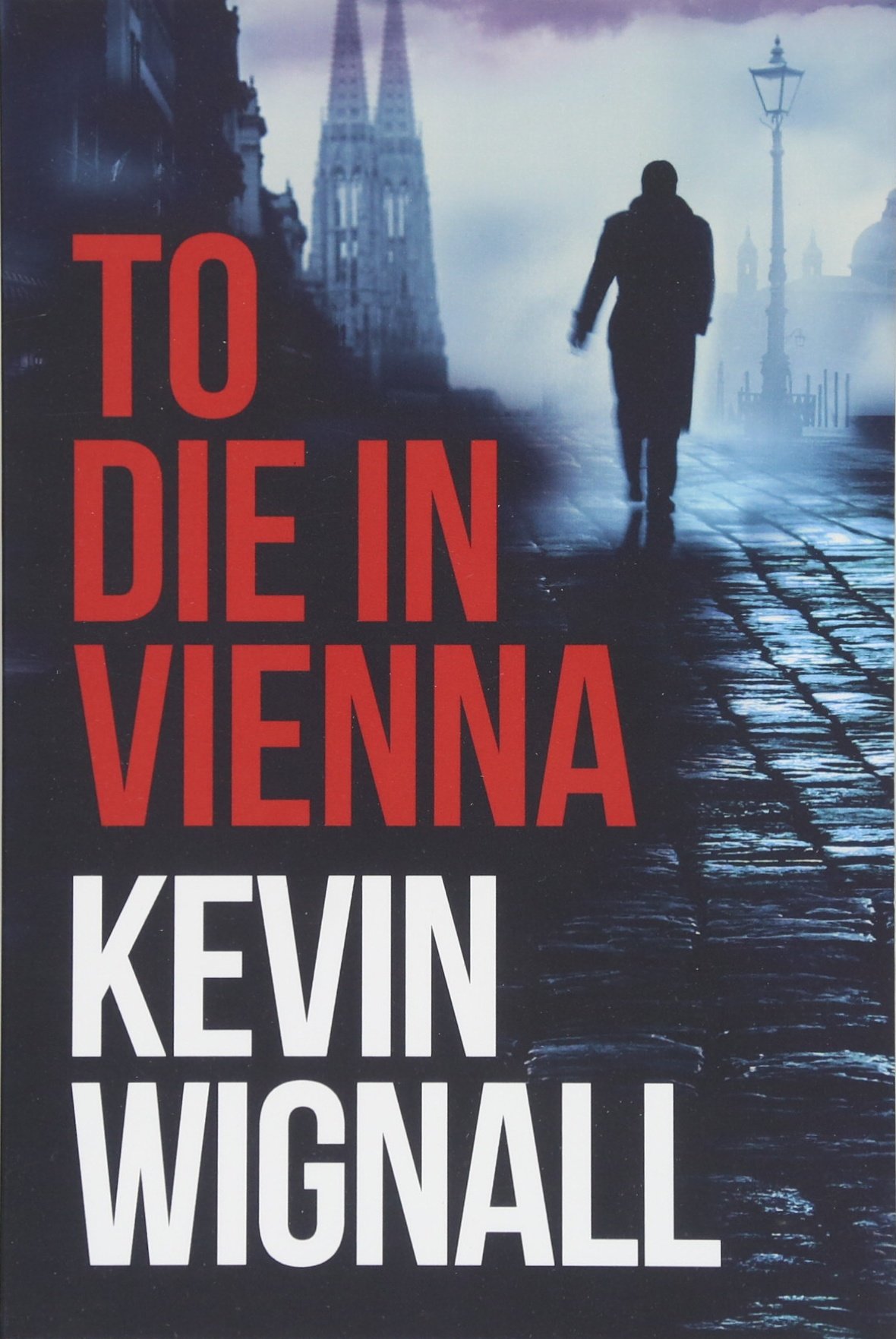



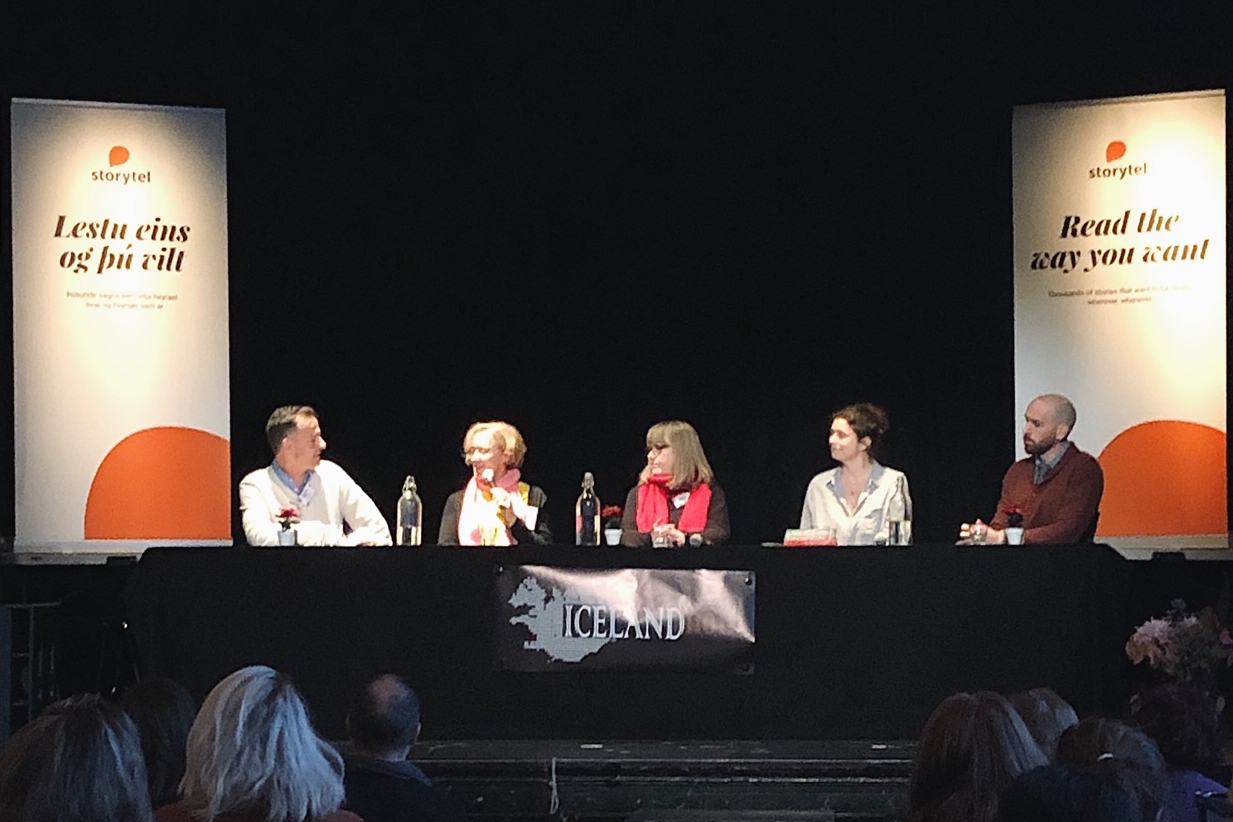






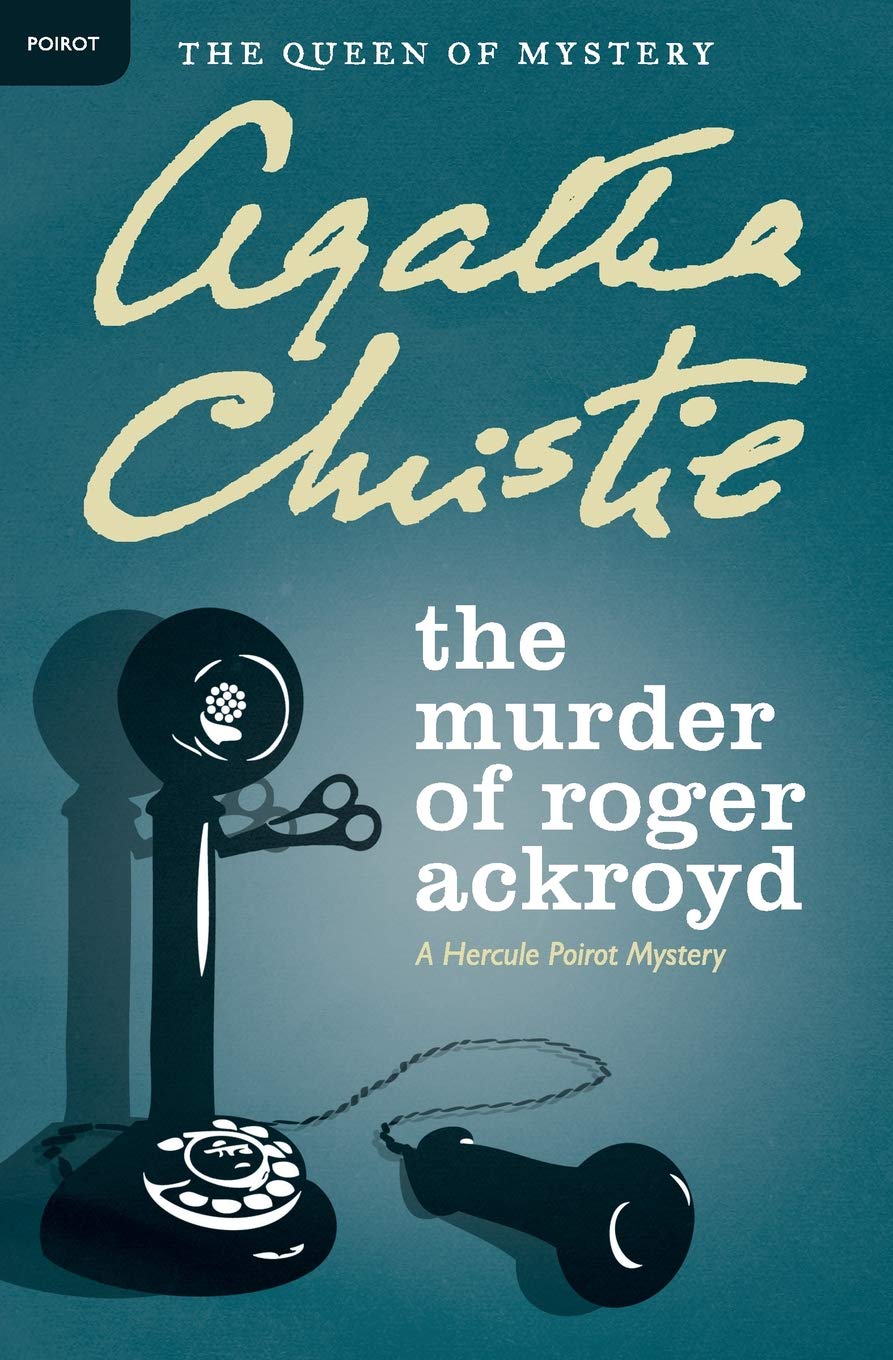
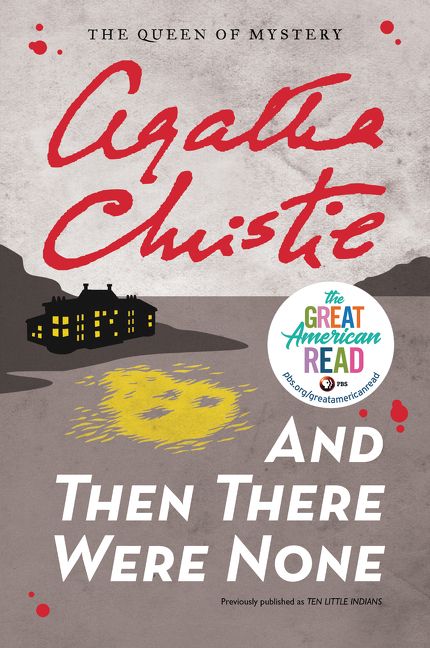
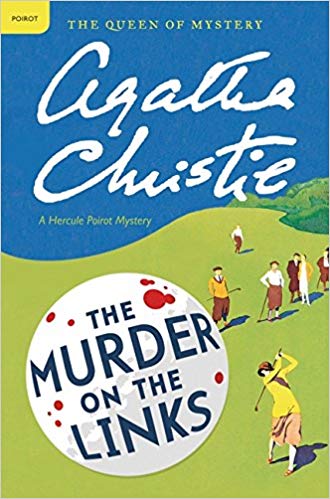
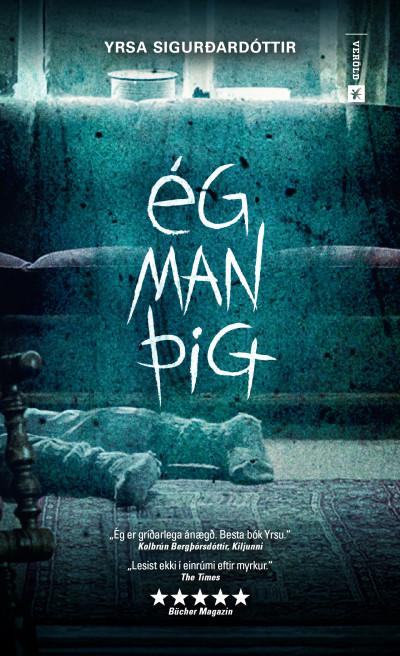
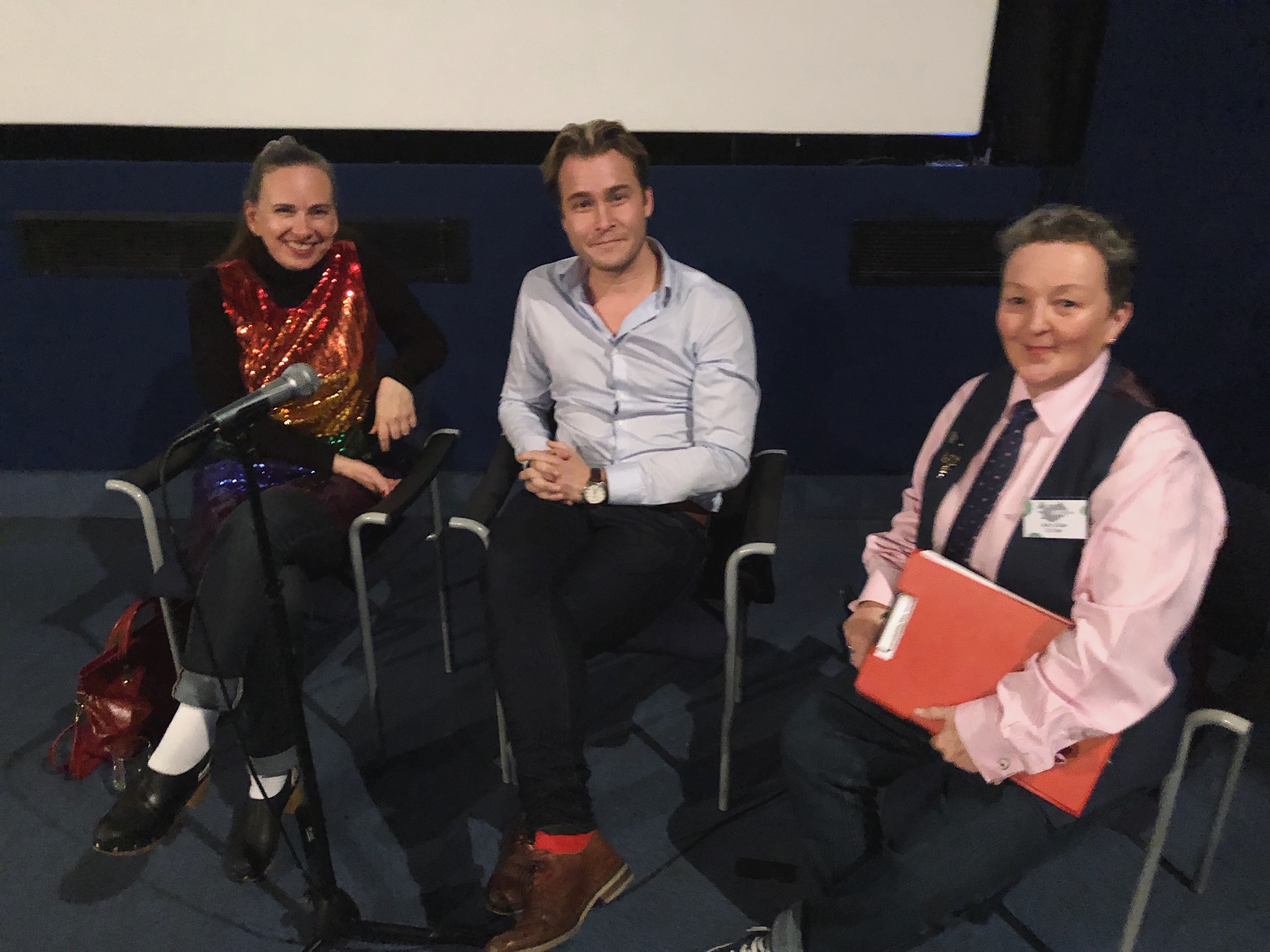
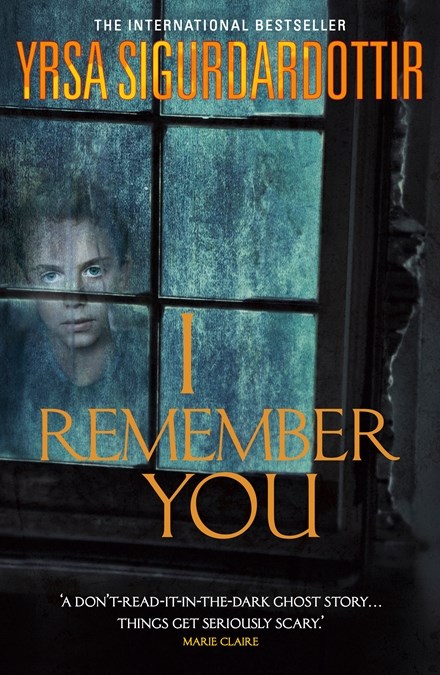
























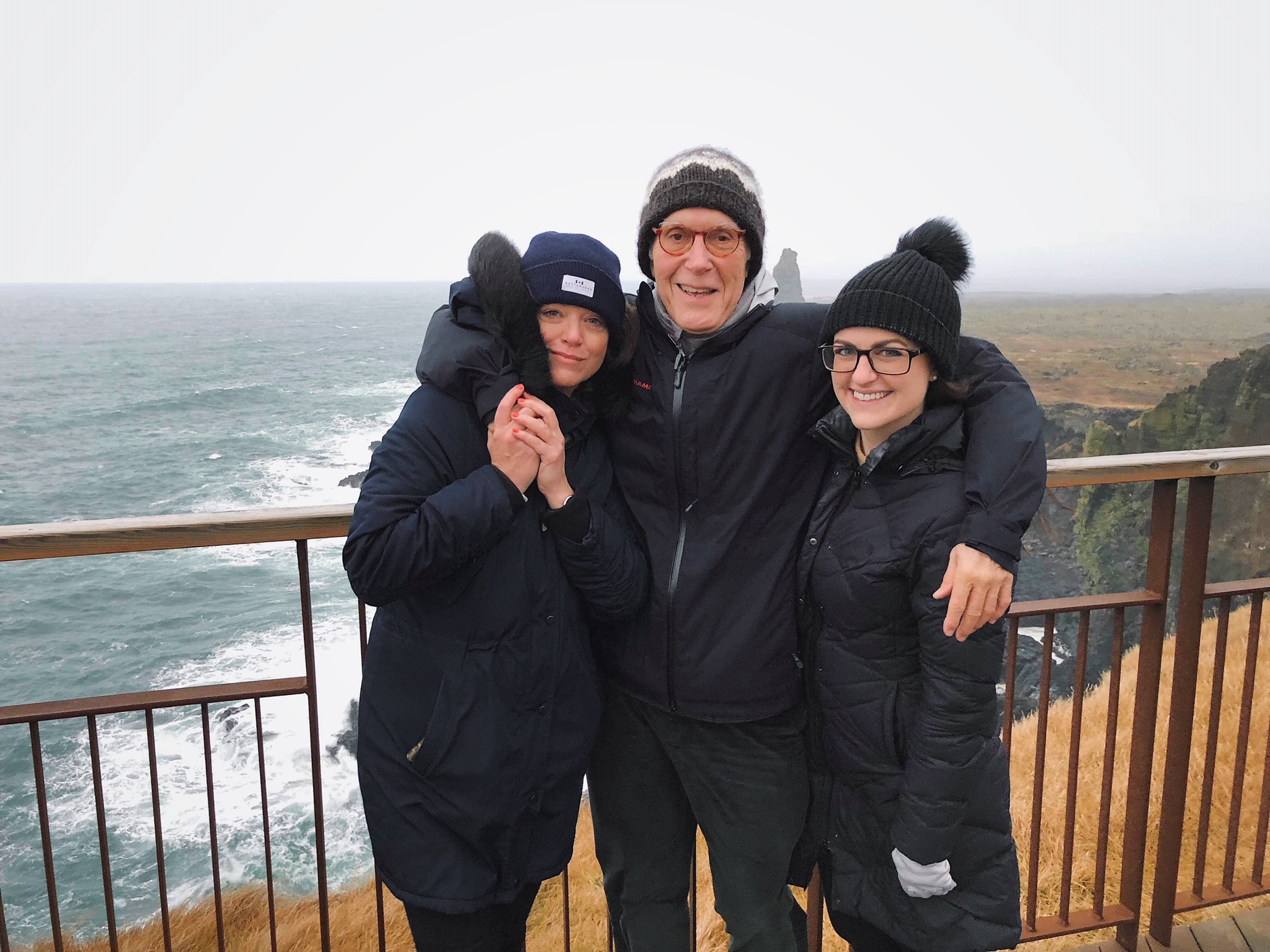












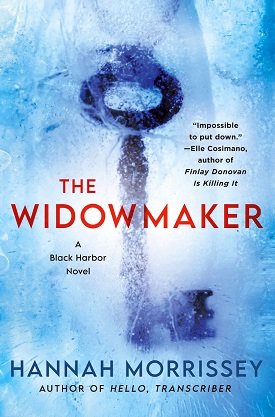
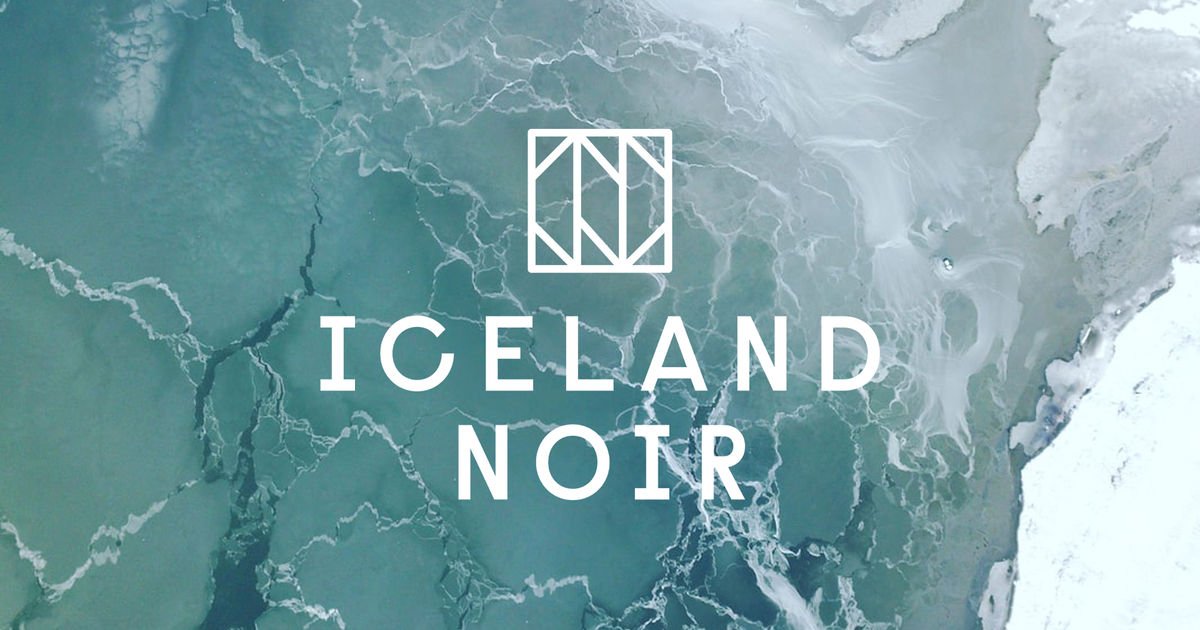



Home ownership feel like a distant dream? Zillow listings have you convinced you’ll be renting for the rest of your life? The woman at the heart of Carissa Orlando’s debut The September House feels your pain—and she’s prepared to put up with a lot if it means she and her husband can finally have a place to call their own. In this case, that might just mean living in a house that’s haunted. Playful and irreverent, spine-tingling and spooky, The September House puts a fresh spin on the classic haunted house story, delivering an immersive tale about the secrets lurking within one building’s walls, and within the lives of its inhabitants.